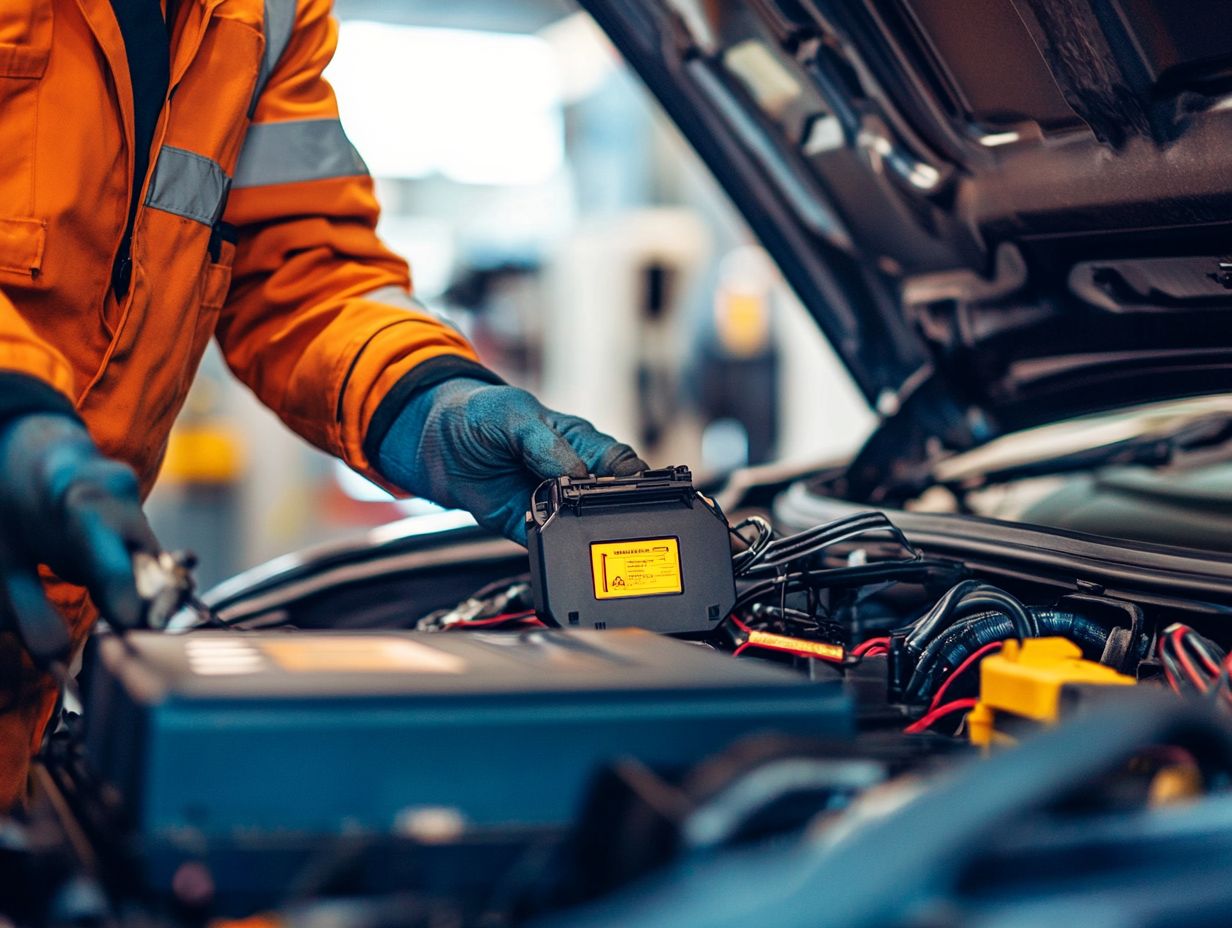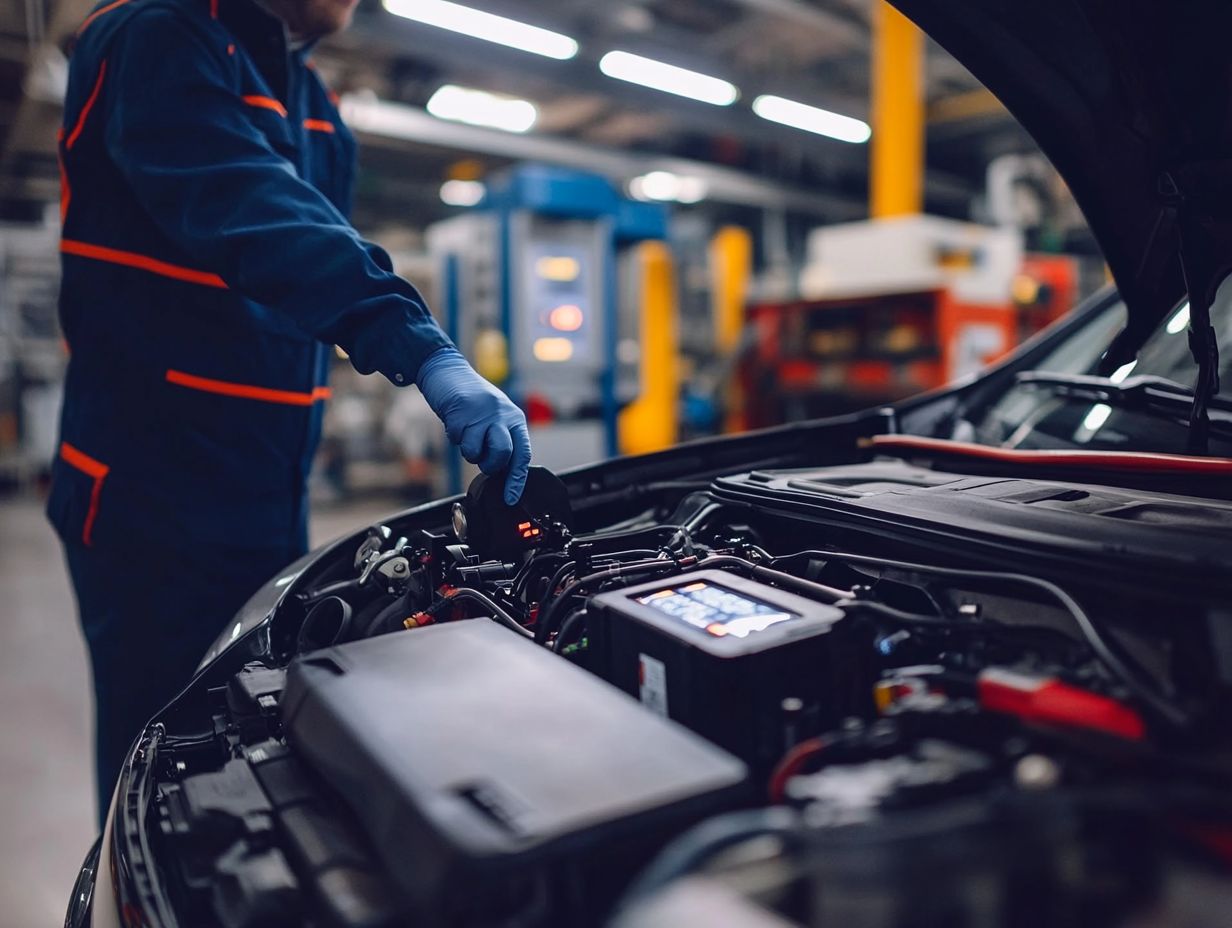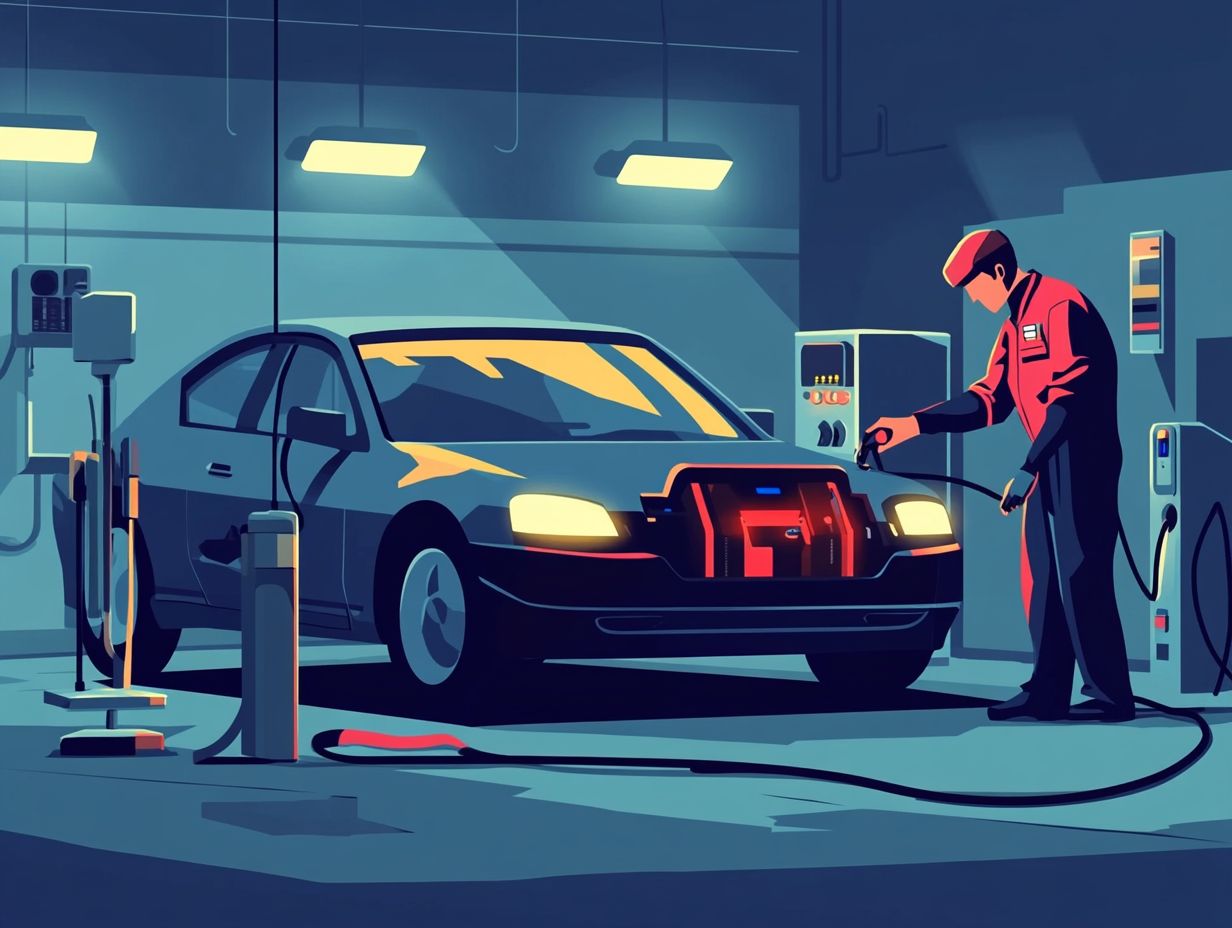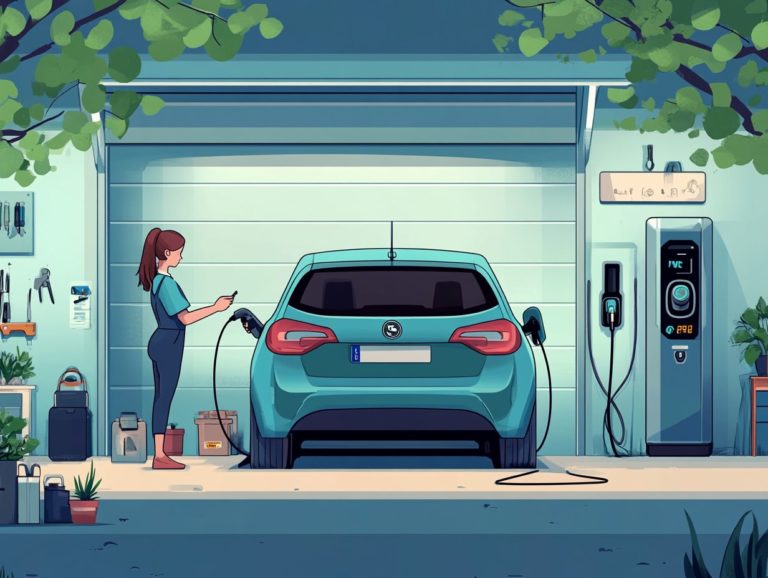Signs Your EV Needs a Battery Check
As electric vehicles (EVs) soar in popularity, grasping the health of your EV battery becomes paramount. Conducting a thorough battery check is essential for ensuring your vehicle operates smoothly and efficiently.
This article delves into the significance of regular battery checks, signs that suggest your battery could use some TLC, common issues you may encounter, and a comprehensive guide to performing a battery check.
You ll uncover the benefits of maintaining your battery in peak condition for optimal performance. Staying informed empowers you to keep your EV running at its best!
Contents
Key Takeaways:

- Regular EV battery checks are essential for maintaining optimal performance and prolonging the life of your battery.
- Signs that your EV may need a battery check include decreased range, warning lights, and unusual sounds or vibrations.
- Performing an EV battery check involves simple steps such as checking the charge level, inspecting for physical damage, and monitoring for unusual behavior.
Why You Need to Check Your EV Battery!
An EV battery check is a thorough procedure tailored to evaluate the condition, performance, and overall health of the battery in electric vehicles (EVs) like the Tesla Model S or Nissan Leaf. This process is essential for understanding battery efficiency, including its charging capabilities and range.
By conducting this check, you ensure that your vehicle operates at peak performance while also extending the battery’s lifecycle and longevity.
Understanding the Importance and Purpose
Understanding the significance of an EV battery check is vital for maintaining optimal performance and longevity throughout your vehicle’s lifecycle. Regular inspections help identify issues such as capacity loss and charging inefficiencies.
By frequently assessing the battery’s health, you can proactively address potential problems before they escalate. Utilizing software tools like TeslaFi and LeafSpy enhances this process, allowing you to monitor vital metrics like the current condition of your battery and overall performance in real time.
When to Get an EV Battery Check
It’s vital to check your battery at key moments in your vehicle’s lifecycle, especially when you notice signs like significant mileage or unusual performance behaviors.
Signs and Indications

Look out for signs that indicate it s time for an EV battery check. Pay attention to reduced range, slower charging speeds, and noticeable performance dips.
For instance, as your electric vehicle racks up the miles, you may notice a decline in overall battery capacity. This can lead to significant drops in the distance you can travel on a single charge.
If charging takes longer than anticipated, that s a red flag hinting at potential battery issues. Utilizing diagnostic tools can help catch problems early by providing detailed insights and data on battery health, ensuring both your safety and your vehicle’s optimal performance.
Common Issues with EV Batteries
Common issues you may encounter with EV batteries include degradation caused by temperature fluctuations, reduced capacity, and diminished charging efficiency. Each of these factors can profoundly affect your vehicle’s overall performance.
Potential Causes and Solutions
Potential causes of common EV battery issues stem from electrical component failures, subpar battery management system (BMS) performance, and inadequate charging protocols.
These factors greatly influence the overall performance and longevity of your electric vehicle. To accurately diagnose these issues, technicians typically employ a range of diagnostic tools, including multimeters, thermal cameras, and specialized battery analyzers. These instruments are essential for uncovering the underlying problems that impact battery health.
Practical solutions to enhance battery efficiency involve leveraging manufacturer warranties to tackle potential defects. Strictly adhering to recommended maintenance practices, like regular software updates and optimal charging routines, is crucial. By focusing on these aspects, you can ensure prolonged battery life and improved performance for your EV.
How to Perform an EV Battery Check
Conducting an EV battery check requires a meticulous approach. This process involves systematic inspections and diagnostics, allowing you to assess the battery’s condition, efficiency, and charging capabilities. Utilize specific testing tools and software designed for precision and accuracy.
Step-by-Step Guide

To conduct an effective EV battery check, follow this step-by-step guide that combines visual inspection with diagnostic testing tools. This will allow you to evaluate battery performance with precision.
-
Start with a thorough visual inspection of the battery components. Look for signs of wear, corrosion, or physical damage that hint at underlying issues.
-
After your initial visual check, use specific testing tools to gather important data on battery health.
-
Next, check voltage levels and temperature readings. These are critical indicators of how well the battery functions under different conditions.
-
As you analyze the data, compare your findings against the manufacturer specifications. This will help you determine if any corrective measures are needed for optimal performance.
Benefits of Regular EV Battery Checks
Check your EV battery regularly for amazing benefits like better performance and longer life! These checks are essential for both electric vehicle owners and manufacturers, ensuring your investment continues to deliver outstanding results over time.
Improving Performance and Extending Battery Life
You can improve your electric vehicle’s performance and extend its battery life through regular checks. Diligent maintenance practices ensure optimal charging efficiency.
To elevate your EV experience, embrace systematic diagnostic routines. Regularly monitor battery health indicators and use software tools designed to detect early signs of potential issues.
Understanding your charging habits is vital. Avoid extremes, like fully depleting or overcharging the battery, to enhance longevity. Keeping your vehicle in a moderate temperature environment protects the battery from extreme heat or cold damage.
By adopting these best practices, you can enjoy a smoother, more reliable ride while maximizing the lifespan of your electric vehicle’s battery.
Frequently Asked Questions
What are the signs that my EV needs a battery check?

Common signs that your EV may need a battery check include decreased driving range, slow acceleration, dashboard warning lights, and difficulty starting the vehicle.
Why is it important to regularly check my EV’s battery?
Regular battery checks help prevent unexpected breakdowns and prolong your EV’s battery lifespan. They also ensure your vehicle’s optimal performance and safety.
How often should I get my EV’s battery checked?
Make sure to check your battery at least once a year or every 12,000 miles for peace of mind!
If you notice any warning signs, get it checked immediately.
Can I check my EV’s battery myself?
Some EV models offer self-diagnostics, but a professional is your best bet for accuracy and proper maintenance.
Is a battery check covered by my EV’s warranty?
Battery check coverage varies. Don t wait! Contact your manufacturer or dealership today to find out what s included in your warranty.
What can I do to prolong my EV’s battery life?
Want to extend your EV’s battery life? Follow these simple tips:
- Avoid fast charging.
- Keep the battery charged between 20-80%.
- Protect it from extreme temperatures.
Regular maintenance and proper usage can also help extend battery life.
Check your EV’s battery condition today!




